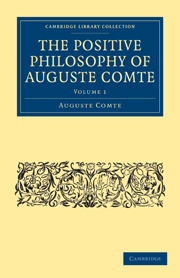CHAPTER III - DOCTRINE OF DEFINITE PROPORTIONS
Published online by Cambridge University Press: 29 August 2010
Summary
Scope of the doctrine
There are two general doctrines in chemistry, as it now exists, which present a systematic appearance, and invest the science with such rationality as it has attained. The first of these is the important doctrine of Definite Proportions.
Even if this doctrine were complete, it could exert only a secondary influence on the solution of the great problum of the science,—the study of the laws of the phenomena of composition and decomposition The essential question is, what separations and new combinations must take place under determinate circumstances; and the theory of definite proportions affords no assistance to this kind of prevision. It proceeds, indeed, on the supposition that the question is already solved; and that it is to be taken as the point of departure for the estimate of each of the new products,—of their quantity and the proportion of their elements. Thus, the theory of definite proportions presents the singular scientific character of rendering rational, in its numerical details, a solution which usually remains empirical in its most important aspect.
It was natural that the founders of modern chemistry should have attended to the laws of composition and decomposition, in preference to a study which they regarded as subordinate; and it was natural also that, as the advance of science disclosed to them the vast difficulties of the main problem, they should attend more and more to the secondary study, which promised an easier and more speedy success.
- Type
- Chapter
- Information
- The Positive Philosophy of Auguste Comte , pp. 322 - 334Publisher: Cambridge University PressPrint publication year: 2009First published in: 1853



